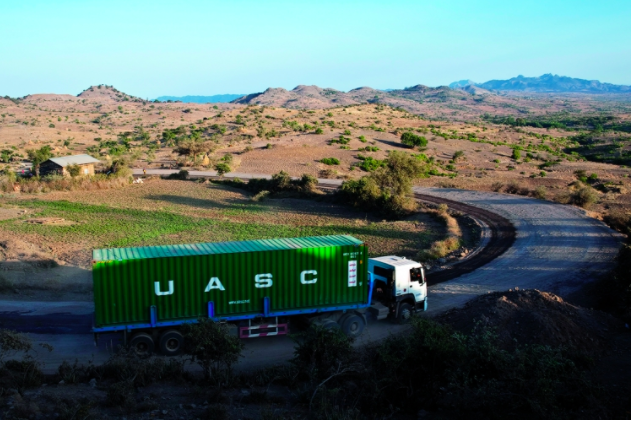NEIL FORD

Djibouti will spend $15bn over the next five years to build new infrastructure and improve its roads, rail and airport network as it seeks to position itself at the heart of African trade.
Roads
Last November, the Djibouti government announced the construction of a new northern road link to Ethiopia, financed by Kuwaiti funds. It is intended to provide a second corridor for the flow of goods from Ethiopia, which is doubling every year and no longer limited to the movement of potash from Tigray and Afar; thus, it will help to bolster the competitiveness of Djibouti’s hub in relation to other ports in the region.
The 112km road has been named the ‘Sheikh Sabah’ after the Emir of Kuwait and is to link Tadjoura, the country’s second city, with Balho on the Ethiopian border, before heading up to Mekele in the north of Ethiopia.
Designed to take 60 ton lorries and relieve pressure on the Route nationale 1, which runs from the capital to the Ethiopian border, the new road link will support Djibouti’s new ambitions, namely to position itself as the linchpin for trade in the Horn of Africa, and to expand its capacity to 100m tons of goods per year.
Railways
The 759km Addis Ababa–Djibouti Railway, the first all-electric inter-country railway system in Africa, completed in 2017 and inaugurated in 2018, is changing the whole experience of travel between the two countries.
It has cut travel time between the two nations from about two days on the road to around 12 and a half hours in considerable comfort.
It is owned by the governments of Ethiopia and Djibouti, with a good part of the $4bn cost for the system coming from China, which constructed the railway.
The railway has a total capacity of 24.9m tonnes of freight annually, although the current haulage is about 5m tonnes – with 6m tonnes annually expected in 2023. Its development is accompanied by construction work at the Port of Doraleh, expected to increase the port’s annual cargo handling capacity to 10m tonnes by 2022.
Operations on the new railway are undertaken by the China Railway Group Ltd and the China Civil Engineering Construction Corporation until 2023 when operations can be taken over by local employees, who are being trained.
The railway is the first step in a vast 5,000km-long network of rail which Ethiopia hopes to build by 2020, connecting it to Kenya, Sudan and South Sudan.
Airways
Meanwhile, development of the airline sector is also underway. The national carrier, Air Djibouti, was relaunched in 2015. Now 70% owned by the Djibouti Ports and Free Trade Zones Authority and 30% by the British company, Cardiff Aviation, it has a new fleet (two Embraer ERJ145s, one Boeing 737-500 and an Airbus A320, recently acquired on lease) and operates new routes.
After Somalia, Somaliland, Ethiopia and Yemen, it has added Jeddah to its destinations and is expecting to include Dubai and Cairo by 2021. With a goal of 240,000 passengers within the next year, Air Djibouti is also banking on the new infrastructure projects contained in the government’s route map.
These include two new airports, the Ahmed Dini Ahmed International Airport near the Sept-Frères archipelago, and the Hassan Gouled Aptidon International Airport at Bicidley, intended to multiply by eight the country’s air transport capacity, which is currently 900,000 passengers.
Chinese investment
The other driver of infrastructure modernisation is China. With Djibouti featuring in the gigantic Belt and Road Initiative as a gateway to the African market, China has invested no less than $15bn since 2008 in the country’s new infrastructure projects in ports, airports and also, digital infrastructure.
These new projects have already had an impact on the country’s economy. According to a study by the Oxford Business Group (OBG), it is the investments in port infrastructure which have contributed to the recorded rise in commercial activity in Djibouti in 2019.
“The recent boom in infrastructure investment in Djibouti could turn the country into a regional hub for East Africa, create jobs and help return debt to a sustainable level,” the IMF has commented. The supporting evidence is that since 2016, the growth rate, which is in excess of 6%, has been driven by public investment.
Source: News Africa


